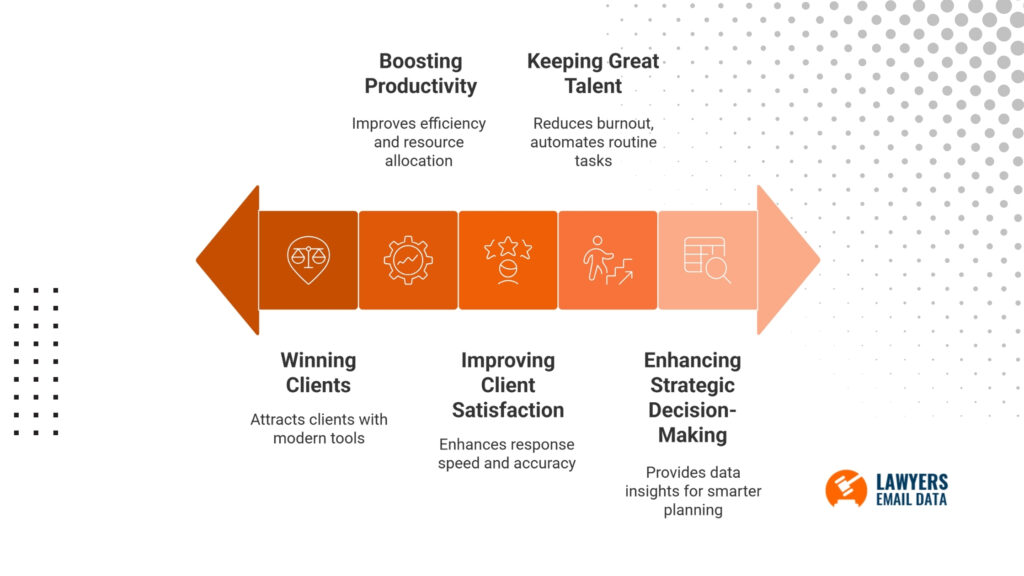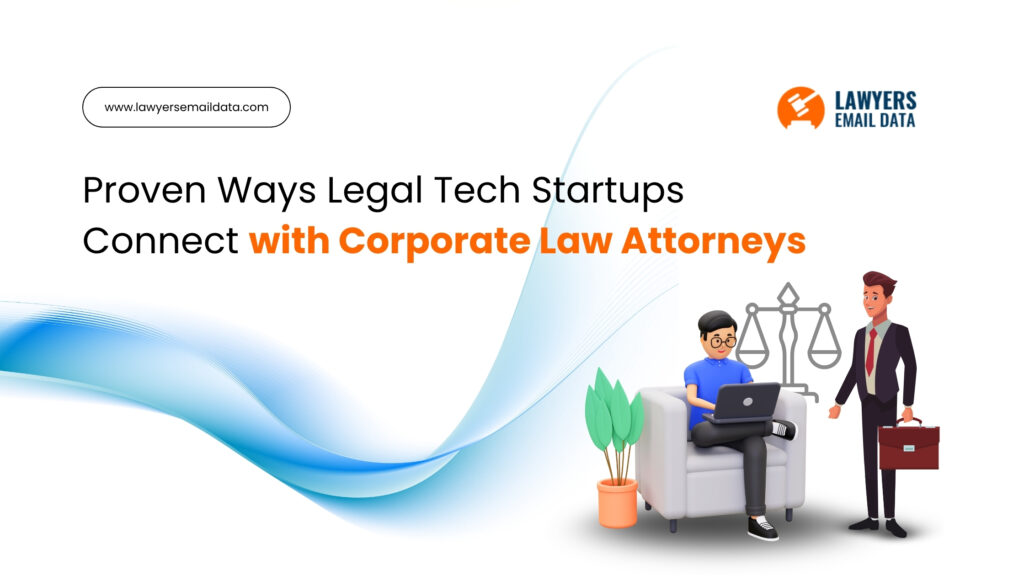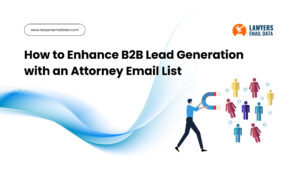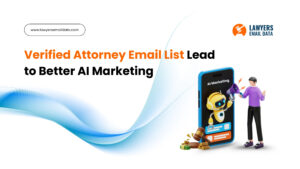Key Takeaways
- Legal tech is revolutionizing corporate law by boosting efficiency, cutting costs, and managing risk, but startups must overcome cultural gaps to connect with attorneys.
- Attorneys prioritize solutions that offer process automation, compliance support, strong data security, and proven ROI.
- Building trust and credibility requires direct engagement through events, content marketing, and partnerships with respected legal organizations.
- Startups can increase adoption by demonstrating clear, quantitative business value and focusing on user experience, transparency, and responsive support.
- Listing solutions on curated legal tech platforms and participating in accelerators or communities helps startups gain visibility and trusted endorsements.
- Multi-channel relationship-building, clear communication, and alignment with legal business needs are essential for long-term success in the corporate legal sector.
How can legal tech startups truly connect with corporate law attorneys who are cautious about change but urgently need smarter solutions?
The legal industry has long been seen as slow to adopt new technologies, especially within the traditional, risk-averse world of corporate law. However, growing pressure to improve efficiency, cut costs, manage risk, and deliver better outcomes has turned legal technology into a vital force for transformation.
The biggest challenge for startups? Bridging the communication and trust gap. While attorneys may hesitate to embrace unfamiliar tools, many are actively searching for solutions that deliver clear business value. Using Curated Email List helps startups reach the right legal decision-makers faster-without wasting time on cold outreach that goes nowhere.
This blog offers actionable strategies backed by industry insights to help legal tech startups engage corporate law attorneys more effectively. You’ll discover what today’s legal teams really want, common pain points they face, proven engagement tactics, must-know startup considerations, and tips to improve your visibility in an AI-first digital landscape.
What is LegalTech?
LegalTech (or Legal Technology) refers to the use of technology and software to help law firms, corporate legal departments, and legal professionals streamline their work. It includes tools for tasks like managing contracts, automating legal documents, tracking compliance, improving case research, and securely storing sensitive data. The goal of LegalTech is to make legal work faster, more efficient, and cost-effective.
What Corporate Law Attorneys Want from Legal Tech
Corporate law attorneys are tasked with navigating vast regulatory complexities, managing sensitive information, ensuring compliance, and responding to increasing demands for fast, reliable legal service. When legal tech startups approach this audience, they must deeply understand the attorney’s perspective.
Key Priorities Include:
- Efficiency and Automation: Solutions that streamline administrative workflows, case management, and document review to free up attorney time for high-value tasks.
- Legal Compliance and Risk Mitigation: Tools that help ensure clients’ regulatory obligations are met and litigation risks are reduced through proper oversight.
- Data Security: Robust measures against data breaches and confidential information leaks are non-negotiable; solutions must inspire trust from day one.
- Return on Investment (ROI): Startups must show precisely how their tech improves productivity, reduces costs, or generates new client value—quantified clearly and credibly.
Pain Points in Corporate Legal Departments
Corporate legal teams often face common challenges that slow down their work. Legal tech startups can make a big difference by solving these issues with smart, easy-to-use tools.
- Document & Contract Overload
Legal teams handle massive amounts of paperwork and complex contracts. Manually reviewing and tracking changes takes too much time.
Legal tech startups offer tools that automate document reviews, manage contract versions, and organize files-saving hours of manual work. - Changing Regulations
Laws and compliance rules are always shifting. Keeping up is tough, especially for teams handling multiple regions or industries.
Legal tech Startups provide compliance tracking software that alerts teams to changes and helps them stay up to date without stress. - Slow and Fragmented Communication
Corporate attorneys often need to talk to business teams, clients, and vendors. Without the right tools, this leads to delays and confusion.
Legal tech Startups help with platforms that centralize communication, track updates, and make collaboration smoother. - Budget Pressure
Legal departments are expected to do more with less. That means cutting costs while still providing fast, reliable service.
Legal tech Startups offer affordable, scalable tools that reduce time spent on low-value tasks-freeing up attorneys for important work.
Key Advantages of Adopting Legal Technology for Law Firms

- Winning Clients:
Clients expect law firms to work efficiently and deliver faster results. Legal technology helps firms use modern tools that impress clients and speed up case outcomes, giving firms a clear edge. - Keeping Great Talent:
Manual, repetitive tasks lead to burnout. Legal tech automates routine work, reducing busywork for attorneys. This makes legal roles more satisfying and helps firms retain top talent. - Boosting Productivity and Profitability:
With over 60% of firms investing in tech upgrades in 2025, digital systems improve overall efficiency, allow better resource allocation, and support hybrid work models that align with modern legal workflows. - Enhancing Strategic Decision-Making:
AI-powered analytics provide deep data insights on caseloads, staffing, and client needs. This enables firms to plan smarter, price more competitively, and deliver higher-value legal services. - Improving Client Satisfaction:
Firms using AI and automation respond quicker and more accurately to clients. Faster case evaluation and document drafting lead to better service and stronger client relationships
Top Proven Strategies for Legal Tech Startups Targeting Corporate Law Professionals
Legal tech startups thrive when they proactively build relationships with their target users: corporate law attorneys. Here are the most effective direct engagement strategies.
1. Start with the Right Contact: Why Access Matters More Than Outreach
Why It Works
Even the best legal tech tools fail to make an impact if they don’t reach the right people. Corporate legal departments are complex, and messages sent to generic inboxes often go unread. Reaching the right attorney-someone involved in compliance, risk, or legal ops-can dramatically improve your chances of getting noticed, booked, and adopted.
How to Implement
- Use a Verified, Segmented Attorney Email List: Start with a clean, up-to-date database segmented by role and practice area. This helps your message reach decision-makers, not gatekeepers.
- Target the Right Roles: Focus on attorneys who influence legal tech decisions, such as those in operations, compliance, or contract management.
- Personalize Your Outreach: Tailor emails to the recipient’s role, challenges, and firm type. Avoid one-size-fits-all messaging.
- Track & Refine: Monitor open and reply rates to identify what resonates and adjust your approach for better engagement.
A curated, high-quality contact list isn’t just a marketing asset it’s your shortcut to relevance, results, and real conversations in the legal tech space.
2. Networking Events and Legal Tech Conferences
Why It Works
In-person and virtual networking remains one of the most effective ways to establish trust in the legal sector, where relationships and reputation matter deeply.
How to Implement
- Participate in Sector-Specific Forums and Expos: Attend and speak at major legal tech events (e.g., Legaltech, CLOC Global Institute) to introduce your solution directly to decision-makers.
- Sponsor and Exhibit: Gain visibility and credibility by sponsoring keynote sessions or exhibition booths, giving hands-on demos of your technology.
- Host or Join Roundtables: Invite law firm leaders to closed-door discussions on “the future of legal tech,” using these as strategic entries into new relationships.
- Follow-Up: Always collect contact details and follow up promptly with resources or demos tailored to attendees’ specific needs.
3. Thought Leadership and Content Marketing
Why It Works
Corporate lawyers are methodical and research-oriented. Positioning your brand as an informed, valuable resource establishes authority and fosters ongoing engagement.
How to Implement
- Publish Insightful Blogs and Research: Share well-researched content on pressing legal tech issues, regulatory updates, and technology trends relevant to corporate law.
- Whitepapers and Case Studies: Launch deep dives into successful implementations, showcasing quantifiable benefits and client testimonials.
- Webinars and Panels: Host or participate in virtual events featuring industry experts—these platforms enable you to educate, engage, and collect qualified leads.
- Newsletters: Deliver concise, valuable insights direct to attorney inboxes, keeping your brand top-of-mind.
4. Strategic Partnerships and Pilot Collaborations
Why It Works
Attorneys are more receptive when new technologies are endorsed by trusted peers or when they participate in tailored pilots that reduce risk.
How to Implement
- Partner with Law Firms or Bar Associations: Collaborate on beta testing, offering tailored solutions and soliciting direct feedback from practicing attorneys.
- Join Legal Tech Accelerators and Innovation Hubs: These programs (e.g. Fuse, LegalTech Fund, MDR LAB) bring startups and law firms together for knowledge-sharing, mentorship, and pilot projects.
- Co-Marketing Arrangements: Develop bundled offerings with complementary legal service providers or consultants, leveraging each partner’s existing client base and credibility.
- Advisory Boards: Recruit respected legal professionals for your advisory panel. Their backing signals authority and attracts peer interest.
5. Legal Tech Accelerators, Incubators, and Innovation Labs
Why It Works
Accelerators and innovation labs fast-track exposure to law firms, legal departments, and investors while providing mentorship and development resources.
How to Implement
- Apply to Recognized Programs: Programs like A&O Shearman’s Fuse, Barclays’ LegalTech incubator offer direct law firm partnerships and feedback loops.
- Join Innovation Labs: Participate in university-affiliated or law firm-sponsored labs to engage with students, academics, and practicing attorneys shaping future tech adoption.
- Solicit Guidance and Pilots: Use these settings to refine your MVP, pilot solutions, and celebrate milestones to attract wider adoption.
6. Industry Platforms, Marketplaces, and Communities
Why It Works
Getting listed and active on curated legal tech platforms makes it easier for attorneys (and their IT leads) to discover, evaluate, and recommend your solution.
How to Implement
- List on Legal Tech Marketplaces: Platforms like Thomson Reuters Marketplace, Reynen Court, and LawNext catalog help buyers evaluate and compare tools.
- Engage Closed Online Groups: Join legal tech communities on Slack, LinkedIn, and bar association forums, sharing insights and answering questions to build authentic credibility.
- Promote Client Success Stories: Encourage satisfied attorneys to share case studies or participate in reference calls; third-party endorsements are especially persuasive in legal circles.
- Referral Programs: Incentivize current users to introduce your solution to peers, further leveraging the power of word-of-mouth discovery.
7. Demonstrating ROI and Business Alignment
Why It Works
Corporate legal buyers need clear evidence that technology investments pay off in real, measurable terms.
How to Implement
- Showcase Quantitative Gains: Share data on how your solution reduced contract review time by X%, or helped avert compliance penalties worth $Y.
- Create Before-and-After Case Studies: Walk through specific client scenarios, highlighting productivity improvement and cost reduction.
- Collect Attorney Testimonials: Feature quotes and interviews with real users, explaining the “why” behind adoption and actual business impact.
- Align With Firm Goals: Frame all messaging in terms of how your technology advances business objectives—profitability, efficiency, talent retention, and client satisfaction.
Conclusion
Connecting legal tech startups with corporate law attorneys is both a challenge and an opportunity. To connect with corporate attorneys successfully, startups need more than innovative tools—they must clearly understand legal professionals’ daily realities. By using a Verified Email List to reach the right decision-makers and combining that with multi-channel engagement, strong partnerships, and value-driven messaging, startups can build trust and break through resistance. Those who align their solutions with legal business goals and communicate impact clearly will help shape the future of legal services.
Ready to connect with corporate law attorneys who matter?
Get our Corporate Law Attorney Email List now for precise, verified contacts that boost your outreach.
Questions? Contact us today and start growing your network!
Frequently Asked Questions (FAQ’s)
1. Why are corporate lawyers hesitant to use legal tech?
Lawyers worry about data privacy and security. To connect with corporate attorneys, offer tools that genuinely protect client info and improve their work—without adding hassle.
2. How do law firms decide if a legal tech tool is right for them?
To connect with corporate attorneys successfully, they look for easy-to-use software that keeps data safe and integrates smoothly with their current systems. Recommendations from other lawyers and clear proof the tool works also matter a lot.
3. How do legal teams measure the value of legal tech?
They check if the tool saves time, cuts costs, reduces mistakes, or improves client service. Tracking these changes before and after using the software helps show its real benefits.
4. How do accelerators help legal tech startups?
Accelerators give startups mentors, funding, and connections to law firms. Joining a good accelerator also shows lawyers that the startup is trustworthy and its products are tested.
5. What can startups do to earn lawyers’ trust?
Be honest about pricing, data security, and product support. Listen to feedback and make improvements. Working with respected lawyers and sharing real success stories helps a lot.
6. What questions should law firms ask before buying legal tech?
To connect with corporate attorneys effectively, ask how the tool protects client data, complies with legal standards, and simplifies their workflow. Request examples from other law firms and clarify the level of support offered.



